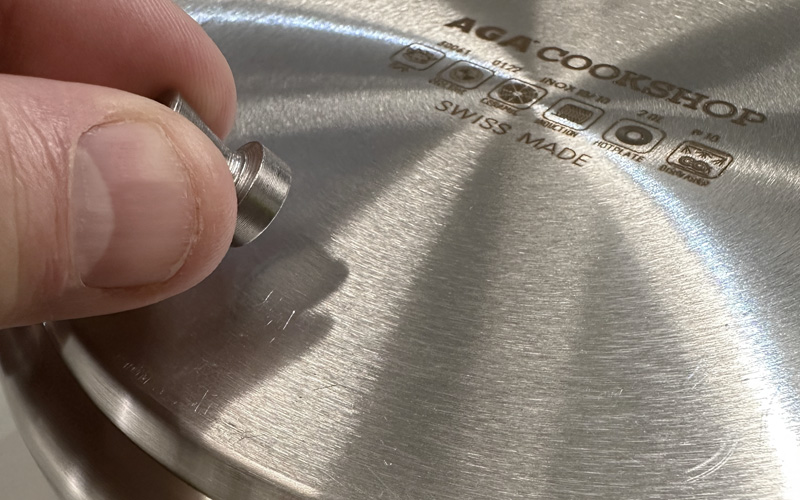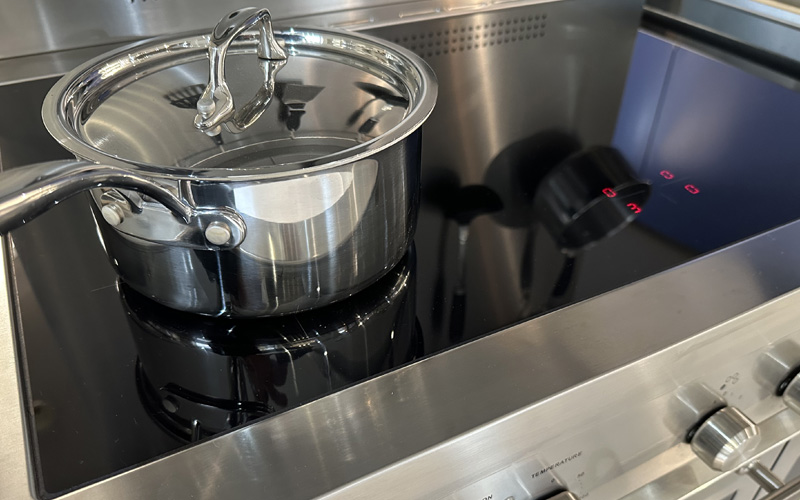Three good reasons not to buy an induction range cooker - and why they’re wrong.
Induction technology has been utilised in cooking for some time now - since the early twentieth century, in fact - and has been a tried, tested and (in our opinion) very welcome addition to the range cooker market. Nevertheless, we still see a large number of customers who are wary of replacing their existing range with induction and throw up a number of obstacles along the path to converting. So, as champions of induction range cooking we’re here to dispel the three myths we hear the most.
My Favourite Pans Won’t Work.
You’re right, they might not. However, there’s a remarkably good chance that they will. All a pan needs to possess is a magnetic base. So, before abandoning the idea of embracing the efficiency and controllability of induction cooking, just take a magnet and hold it against the base of your pans - if it holds, you’re gold.

My Electric Supply isn’t High Enough.
Again, you might be right - some induction range cookers require a higher rated connection than typically found with dual fuel cookers. A larger number don’t - for example induction models from Rangemaster, Falcon, Mercury and Stoves will all work happily on a 32amp fused connection. As Rangemaster confirm here, both their ceramic and induction models may be connected to a 6mm cable with a 32amp breaker. They recommend a 45amp connection to allow greater flexibility (read using every oven and every hob zone at the same time, but who really does that?) however a 32amp will work perfectly well. So don’t immediately rule out induction for that reason.
I Just Prefer Gas!
This is the most common reason we hear for people not choosing induction. Some people enjoy the visual feedback of a flame and the general ‘feel’ of gas cooking. One thing a lot of these people fear is the loss of responsiveness and power that gas affords them. This is unfounded - induction is actually more responsive than gas due to the way that heat is transferred (directly through the cookware). Not only is it faster, but induction offers more precise and consistent heat control than gas. It’s considerably safer, too - the glass surface of the hob retains heat for a shorter time after it’s switched off and the pan moved away. On the subject of glass surfaces, they’re much easier to clean than stainless hotplates and cast pan supports which is another huge benefit of the move to induction. We have haven't even started on the HUGE environmental benefits of renewable electricity powering your cooking over gas, but that's for another time ...

So, while these concerns - about cookware, electrical supply, and gas preference - are valid, they’re often based on misconceptions which hopefully the above has gone some way to addressing. Of course if there’s anything else that’s putting you off, give our team a call. We’d be happy to answers any questions you have.
If we've convinced you already, you can start your search for an induction cooker here.
